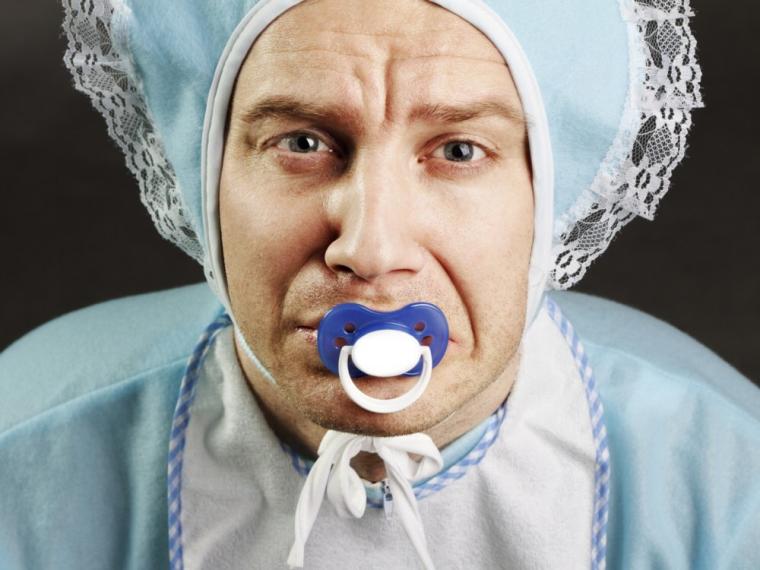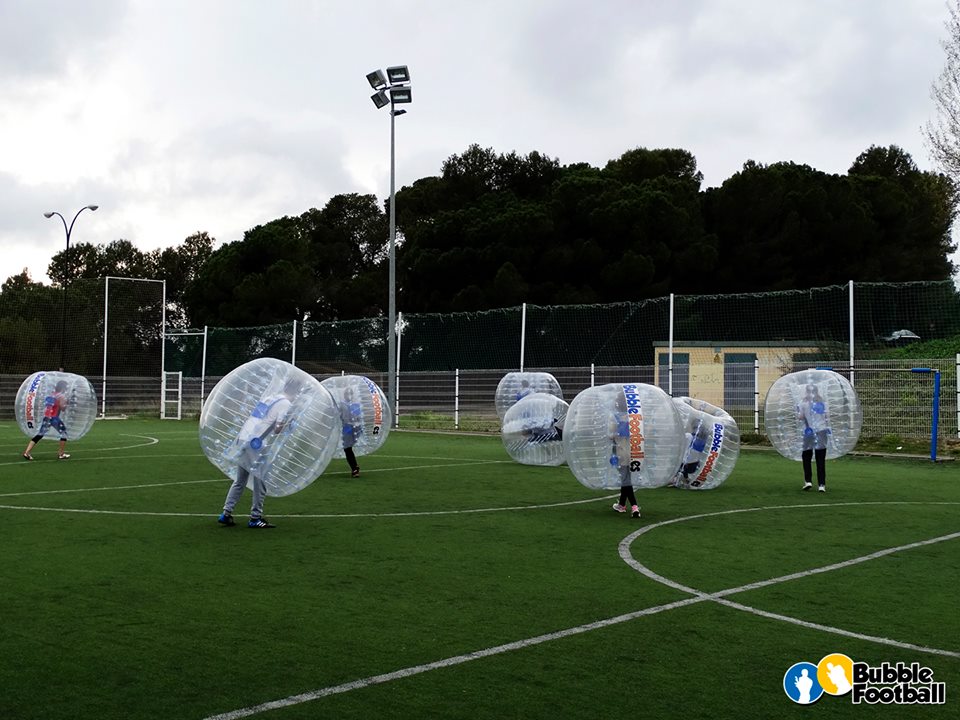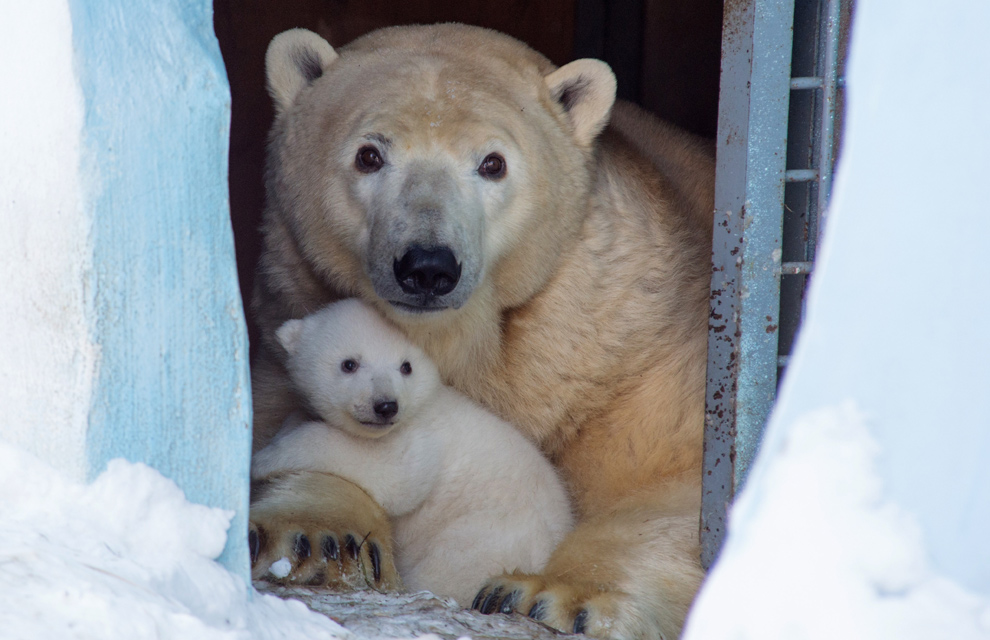The advances of society, and the rights we have as a human being in this same, have undoubtedly brought us a better quality of life and a more satisfactory perception of the daily situations that occur in our day to day. But is it always useful to have a comfortable and pleasant experience? Where would lead a life of comfort and without situations that generate stress?
Nowadays we meet very frequently with children at early ages with high levels of frustration, dissatisfaction, even showing aggressive behavior in search of reaffirmation or achievement of their own goals. So there is an interest in knowing where these misplaced or
exaggerated behaviors are born.
Imagine for a moment that their caregivers during their first years of life have literally prevented them from walking on their own feet with the intention of preventing them from falling and trying to hurt themselves. But suddenly, when they are older, there is an urgent need to run away from danger and they do not have that support they have always enjoyed. What would be your reaction? Could they be able to cope with the demands of the situation? Or would they feel helpless and frightened when perceived without the necessary tools to solve the problem? Maybe the answers are all reduced to that they would not be able to do it and the feelings would be negative and frustrating.

IS IT GOOD TO PROTECT OUR CHILDREN FROM DIFFICULTIES?
From the discipline of psychology, it is interesting to address the concept of overprotection, which is a parenting style adopted by parents whose main characteristic is to try to remove any difficulties or discomfort that may be found by their son or daughter in the different situations of daily life. But, with the intention of avoiding this suffering, it indirectly generates an inability on the part of the children to manage the stress that will inevitably appear at some point in their life. If we remove any stressful agent from children, we eliminate those situations of learning and trial and error and, therefore, the possibility that they draw their own conclusions and develop conflict resolution tools.
This is why, if we follow this overprotective parenting style, it is possible that when moments arise in which the child must respond to the demands that their stage of development requires, they do not know how to cope, and sensations such as those of helplessness, frustration and fear.
Sometimes it is very easy to let the protective side of parents emerge, since it is the law of life to have that instinct that makes us look for the safety of our descendants. But it is important to make an act of reflection on how much and how far I should intercede for them, and when it will be more beneficial for the child to let him solve his own conflicts.

THE OVERPROTECTION IN SPORTS
All this concept of overprotection has been widely developed from the educational and school discipline, but now, as a sports psychologist, I would like to apply it more in detail to the field of sport. The sports field is a terrain with very special characteristics that make the rules of the game and behavior are very different with respect to other planes of daily life. The sport is, in essence, competition, overcome rivals and be better than them, which can seem very hostile and rivalry. But on the other hand it also supposes personal development and self-improvement, at the same time to test your own limits, and know how to carry out these victory behaviors without despising and respecting your opponents in practice. A mixture of values that are difficult to differentiate by themselves if we prevent them from making their own decisions and acting independently.
CULTURE OF EFFORT
Without looking away from sports, I would also like to refer to the “culture of effort”. To advance and improve, especially in sports, it is essential to strive and work in a disciplined manner. Sometimes, without realizing it, demanding certain benefits for our children with
the intention of protecting them, or offering them what we think they deserve, we are transferring a message that goes against the effort, and entails a spirit of “having something by decree “, without having worked for it. Therefore, what we are really doing is a disservice by not teaching them that sometimes certain achievements are only achieved with effort and sacrifice.

Regarding the world of football, before becoming a professional, it is necessary to go through a training stage, that is, the rules on which this period is held are those of learning, not those of pure competition. What does this mean? Well simply that it would be a mistake
to compare the roles of children to the roles played by football professionals. That is, perhaps the child is at a time of development that does not need to have the same demands, minutes or prominence, which may require a first or second division player.
EXPECTATIONS AND REQUIREMENTS FROM WHOM?
In this case, the concept of overprotection is added to another of great relevance, which is that of expectations and demands. Sometimes it is easy to confuse stages in the development of the athlete, and demand roles and professional performances of a child who is in the learning phase. Applying completely disproportionate expectations of achievement, or demanding performance or leading roles, can have a number of repercussions on the player, such as the perception of disability, feeling of failure, or feelings of rejection of the sport. He can also generate rivalries with his teammates by thinking that they are more deserving than the others and focusing his mentality on negative aspects of his stage of development (aspect that will make even more negative the subjective experience he has of that phase).

THE BEST FORMULA FOR YOUR DEVELOPMENT
In conclusion, it goes without saying that there is no code book of correct behaviors to educate our children, but it is true that we must take into account the factors mentioned above when responding to them, demanding certain merits, or finding guilty in the moment of development in which they are. It is essential to generate in them the culture of effort and promote the autonomy of behavior, so that in the future they will be more independent, since they will not always have our support.
In these times, we live in the culture of comfort, comfort and immediacy, explosive recipe if what we want is a successful future and to enjoy its own merits. Nowadays, both in sport and in the world of work, there is more and more competition and it is not exactly the most successful ones that are easier to have, but rather those that best know how to cope with adverse and new situations.
Letting children do it, knowing when to step aside and let them take the step forward is the key to optimal development. Of course, we should not stop being your help if you need it, but never your constant solvers since that will not be the long-term help in any case.
Javier Rivera Triguero
Sports Psychologist








